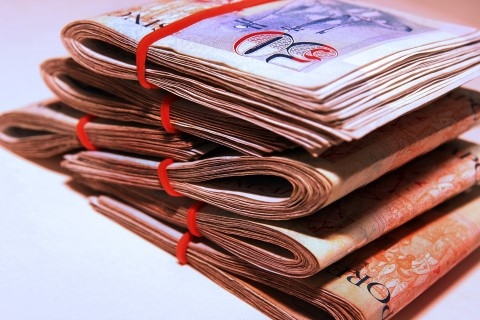
Companies in the dark about adjusting prices during GST hike
The government didn’t give a specific date on when it would raise the tax rate from 7% to 9%.
After a long period of time, Singapore will raise its Goods and Services Tax (GST) rate by 2 ppt from 7% to 9%, but it didn’t give a specific date. The government only said that it will raise the tax between 2021 and 2025, leaving businesses and consumers asking when should they expect the prices of goods to climb up.
Jochen Krauss, managing partner at global pricing consultancy Simon-Kucher & Partners, told Singapore Business Review that there's high uncertainty about what the magnitude and timing of the tax hike. “That's what we know, and that's the uncertainty that businesses now have to think about. How do I approach this? Do I just stay firm and wait for more things to come?” he added.
Before Budget 2018, a hike in the GST rate was a hot topic as analysts have previously forecasted that the government will introduce the rate hike staggeredly in order to soften the blow to companies. Despite that, a lot of businesses are still in the dark on how to react to the tax hike.
Also read: GST hike long overdue: UOB
Krauss said that businesses are likely to use three strategies to respond to a tax hike: pass it on to customers and raise prices; absorb the hikes; or introduce new products.
“The first strategy for the customer perspective is the most troublesome strategy,” Krauss noted. ‘I would say because it means that prices will increase. That is a question that every company has to answer for itself: how should I approach it? What do I think my competitors will be doing? Should I absorb it, should I pass it on? If I pass it on, do my prices still look nice?”
He then brought up a different approach, which would be “to think if I know there will be a price increase, should I probably already do something about my products/service pricing today, so when the GST hike will come, I can simply absorb it because I already have prepared for it?”
Economist Corporate Network director Rob Koepp is more firm that businesses will likely transfer the costs to consumers.
“Typically what happens is that it always gets transferred to consumers,” he said. “Even if a company doesn't increase their prices, the cost to consumers is that companies have then less money. So they're gonna have less money to invest in new products or services, or they're gonna have to cut down quality in some way. Either way, you say ultimately consumers pay for this, right?”
However, Krauss argued that there will be instances and even in a large product range, there will be instances where price is not the major consideration for customers. “Maybe a manufacturer will just pass it on because the magnitude is not high enough. There might be other sectors or even within one company, there might be unique price points where you think this is a very obvious price point,” he added.
“I guess the smartest way to do it is if the company were to be more transparent and actually increase their prices accordingly that would be best,” Koepp said. In the end, he lauded Singapore’s ability to give its people a heads up and that there's over a year to prepare for the hike.
Meanwhile, businesses could also take the opportunity to create new marketing messages for consumers. Krauss noted that when a regulator changes prices, an “unnatural high attention” goes to the topic of tax that could lead to consumer reactions.
He added that there will be a short time increased rate of switching to alternative manufacturers because they seem to be attractive at that point in time. “There is an opportunity for other manufacturers to change their marketing messages in a way to attract higher market shares.”
























 Advertise
Advertise






